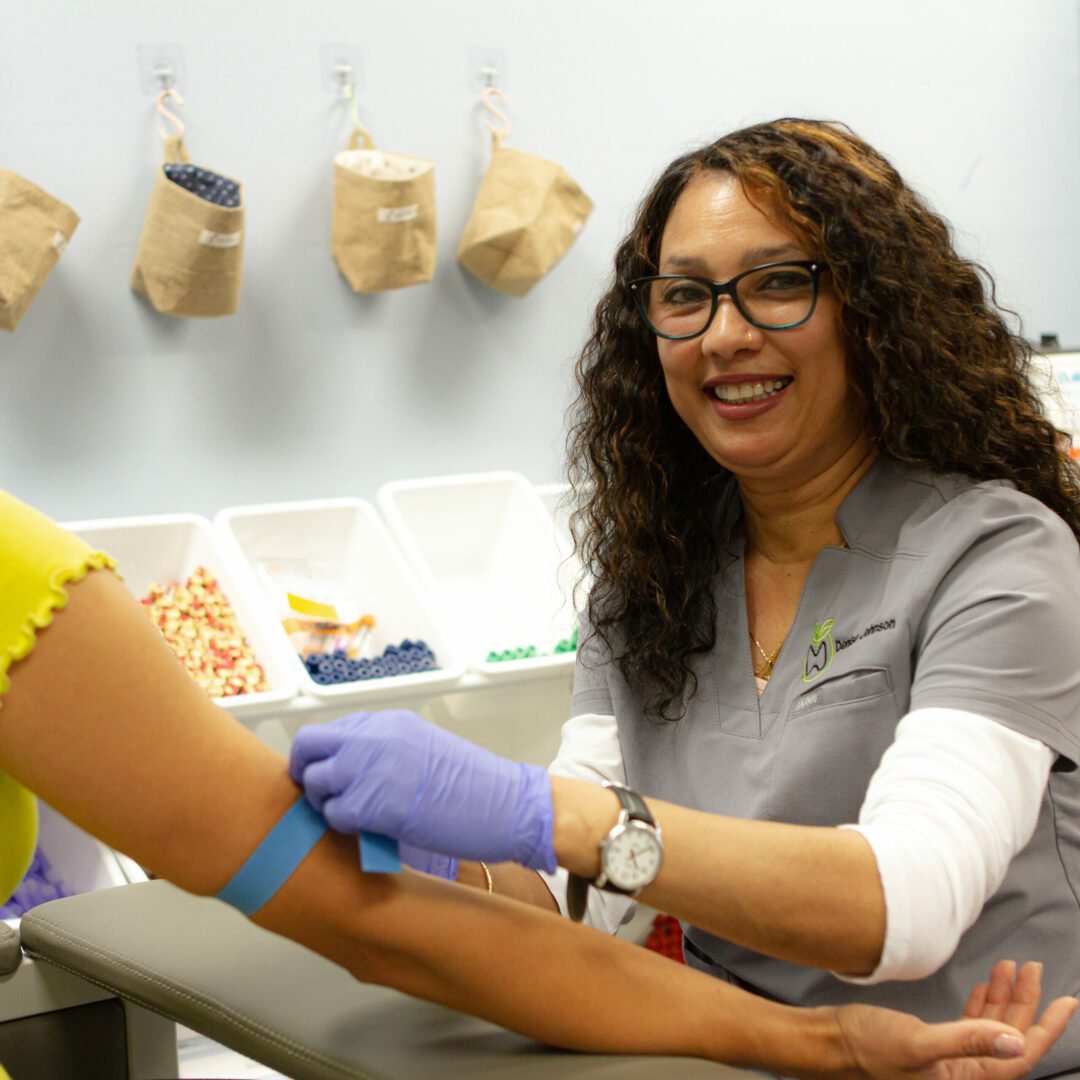There is a lot of talk nowadays about body detox and the word is often used casually. It is primarily due to the fact that our bodies are regularly exposed to toxic chemicals and we all just want to know how we can get rid of them to live a healthier life.
However, did you know that your body is well-equipped to remove these toxins most of the time without additional help? Yes, your body has natural detoxification processes that work continuously to eliminate toxins and waste products from your system. These processes are carried out by various organs and systems, including the liver, kidneys, lungs, skin, and digestive system.
Learn more about body natural detoxification by reading this article. We’ll talk about the following topics:
What Is Body Detoxification?
In essence, body detoxification is the process of removing toxins from the body naturally. It is the process by which the body eliminates toxins and waste products from its system. Toxins can come from various sources, such as the food we eat, the air we breathe, medications, and environmental pollutants. Some of these are very harmful and can cause potential damage.
As mentioned above, our body has a natural ability to detoxify itself through several organs and systems that work together to break down and expel harmful substances. On a day-to-day basis, our liver, kidneys, intestines and lymphatic systems are doing this work continuously for us.
How The Body Detoxes Naturally
The body has a remarkable ability to detoxify itself naturally and here's how the body’s various organs and systems work together to break down and eliminate harmful substances:
Liver
The liver is the body's primary detoxification organ, playing a crucial role in filtering toxins and harmful substances from the bloodstream and breaking them down for elimination. The liver also employs various processes and mechanisms to detoxify the body such as:
- Blood filtration
- Biotransformation
- Bile production
- Metabolizing medications and alcohol
- Ammonia conversion
- Storage and release of nutrients
If you want to support your liver's natural detoxification processes, you can start by maintaining a healthy lifestyle, including a balanced diet, regular exercise, proper hydration, and adequate sleep. Also, if you have concerns about your liver's ability to detoxify or specific health issues related to liver function, it is advisable to consult a healthcare professional for personalized guidance.
Kidneys
The kidneys contribute to detoxification through its million filtering units called nephrons which are responsible for filtering the blood, removing waste products, toxins, and excess water to form urine.
In addition to protein waste, urea (a byproduct of protein metabolism) and creatinine (a byproduct of muscle metabolism) are also filtered by the kidneys. These waste products are concentrated in the urine and eliminated from the body when you urinate.
Lastly, kidneys also play a crucial role in maintaining electrolyte balance in the body, including regulating sodium, potassium, and calcium levels. Proper electrolyte balance is essential for overall health, including nerve and muscle function, hydration, and pH balance.
Lungs
The primary function of the lungs is to facilitate gas exchange, which involves inhaling oxygen (O2) and exhaling carbon dioxide (CO2). Oxygen is essential for cellular respiration, a process that generates energy for the body. Carbon dioxide is a waste product of cellular respiration and must be removed from the body to maintain proper acid-base balance and prevent toxicity.
Lungs contribute to our body detoxification by removing certain volatile compounds, such as alcohol and anesthetic gasses, from the bloodstream through the process of exhalation. As blood passes through the lungs, these volatile compounds diffuse from the blood into the air sacs (alveoli) and are then exhaled.
Coughing and sneezing are also natural defense mechanisms that help expel mucus, irritants, and pathogens from the respiratory tract. These actions help keep the airways clear and reduce the risk of infection and toxin accumulation.
Skin
The skin, as the largest organ in the human body, plays a role in detoxification by providing a physical barrier and eliminating some toxins through sweat.
To explain it further, the skin acts as a protective barrier that shields the body from harmful substances in the environment, such as bacteria, viruses, and environmental pollutants. The outermost layer of the skin, called the stratum corneum, is made up of dead skin cells and lipids, creating a barrier that helps prevent the entry of toxins and pathogens into the body.
The skin also contains sweat glands that produce sweat in response to heat, exercise, or stress. Sweating helps regulate body temperature and can also assist in the elimination of some toxins, such as heavy metals and chemicals. While the amount of toxins eliminated through sweat is relatively small compared to the liver and kidneys, it still contributes to the body's overall detoxification process.
Digestive system
The digestive system, including the colon and gut microbiome, plays a crucial role in detoxification by processing and eliminating waste products and toxins from the food we eat. Digestive system breaks down food into smaller molecules, allowing the body to absorb nutrients and energy. During this process, potentially harmful substances, such as pesticides, additives, and contaminants, can also be broken down, reducing their potential toxic effects.
As mentioned earlier, the liver is the primary detoxification organ. After nutrients and potential toxins are absorbed from the digestive tract into the bloodstream, the liver filters the blood and neutralizes toxins. This process helps prevent harmful substances from reaching other parts of the body.
Lastly, the colon or large intestine also plays a vital role in the elimination of solid waste and toxins from the body. It absorbs water and electrolytes from the remaining undigested food material, forming feces that are eventually excreted. The colon also houses a diverse population of bacteria, known as the gut microbiome, which helps break down and detoxify various substances in the digestive tract.
Lymphatic system
The lymphatic system also plays a crucial role in detoxification by facilitating the removal of waste products and toxins from the tissues and helping maintain the body's fluid balance.
The lymphatic system is a network of vessels and organs that transport lymph, a clear fluid containing waste products, toxins, and immune cells. Since the lymphatic system plays an essential role in the immune system by transporting immune cells, such as lymphocytes, throughout the body, this allows the immune cells to monitor the body for potential threats, such as infections and toxins, and respond accordingly to help protect and detoxify the body.
Lastly, the lymphatic system is involved in the absorption of dietary fats and fat-soluble vitamins. Lacteals, specialized lymphatic vessels located in the small intestine, absorb these nutrients and transport them to the bloodstream. While this function is not directly related to detoxification, it is essential for overall health and nutrient absorption.
How to Detox the Body Naturally
As you may already know by now, detoxifying the body naturally only involves supporting the organs and systems responsible for eliminating waste and toxins. Here are some tips and ways to promote natural detoxification:
- Hydration: Drink plenty of water throughout the day to help your kidneys flush out waste products and toxins. Adequate hydration also supports digestion, circulation, and overall health.
- Balanced diet: Consume a diet rich in whole, unprocessed foods, including fruits, vegetables, whole grains, lean protein, and healthy fats. These foods provide essential nutrients, antioxidants, and fiber that support detoxification and overall health.
- Fiber intake: Increase your fiber intake by consuming whole grains, fruits, vegetables, and legumes. Fiber helps maintain regular bowel movements and supports the elimination of toxins through the digestive system.
- Limit processed foods and sugar: Reduce your intake of processed foods, refined sugar, and unhealthy fats, as they can contribute to toxin buildup and inflammation.
- Exercise regularly: Engage in regular physical activity to support circulation, lymphatic flow, and overall health. Exercise also helps stimulate the digestive system and promote regular bowel movements.
- Get enough sleep: Prioritize sleep to support your body's natural repair and regeneration processes. Aim for 7-9 hours of quality sleep each night.
- Manage stress: Incorporate stress management techniques, such as deep breathing exercises, meditation, yoga, or mindfulness, to support your overall well-being and reduce the impact of stress on your body.
- Support liver function: Consume foods that support liver health, such as cruciferous vegetables (broccoli, cauliflower, and kale), garlic, beets, and turmeric.
- Avoid alcohol and smoking: Limit your alcohol intake and avoid smoking to reduce the burden on your liver and lungs, which play essential roles in detoxification.
- Skin care: Practice proper skin care, including cleansing, exfoliating, and moisturizing, to support the skin's detoxification processes. Dry brushing can also help stimulate lymphatic flow and remove dead skin cells.
Key Takeaway
It is important to keep in mind that your body is designed to naturally detoxify itself through a variety of organs and systems, so it is typically not essential to follow a specialized detox program or utilize detox products.
By simply maintaining a healthy lifestyle, including a balanced diet, regular exercise, proper hydration, and adequate sleep, you can support your body's natural detoxification processes and promote overall health. If you have concerns about your body's ability to detoxify or specific health issues related to detoxification, it is advisable to consult a healthcare professional for personalized guidance.




